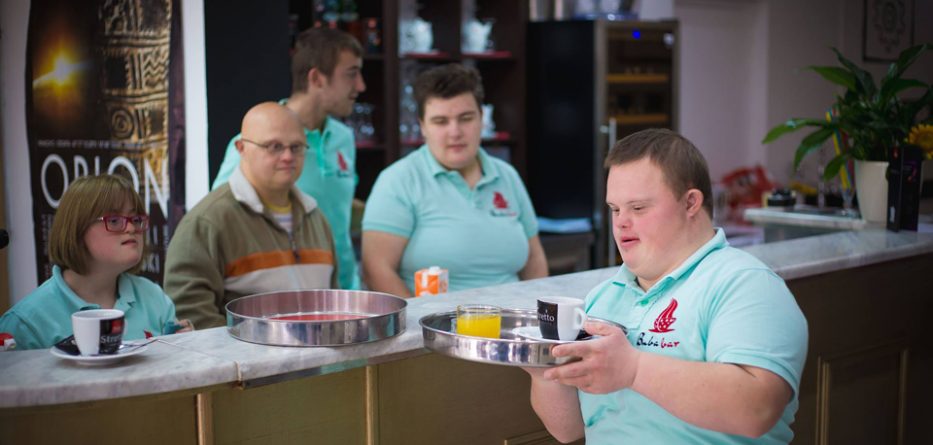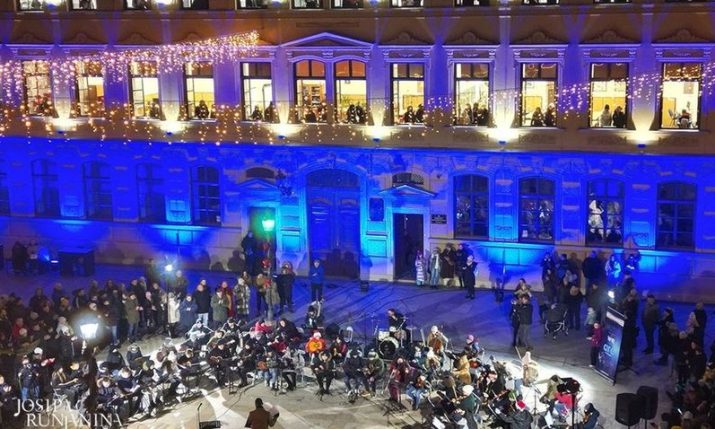Bar with Down syndrome staff opens in Vinkovci
- by croatiaweek
- in News

(Photo credit: Bubamara association)
ZAGREB, July 1 (Hina) – The Buba bar in Vinkovci, which opened on Wednesday, is one of the rare examples of social entrepreneurship in Croatia and in addition to employing professional waiters, the bar will employ a dozen disabled persons, mostly with Down Syndrome.
They are all members of the Bubamara association of disabled persons which organised the project. The Buba bar opened after receiving a licence, having waited for one year for it to be issued.
“We are trying to be an association with real and not just declarative action. In addition to numerous projects that we have realised, one of our policies was to employ disabled persons and over the past seven years we have managed to mediate 1,000 employment contracts,” the association’s president Tomislav Velic said.
He said that the bar has made it possible for disabled persons to realise not only their constitutional but their natural right to employment.
As such the bar is exceptionally important not only locally but at the national level because it is breaking the ice for the right to work to be ensured for all citizens in Croatia, he said.
“Thanks to the Buba Bar and former Minister Nada Murganic, the Social Welfare Act was amended to say that disabled persons have the right to work without losing their disability allowance, which had been the case until now,” said Velic.
The Bubamara association has about 1,500 disabled members in Vukovar-Srijem County, with Velic saying that the association does not want to be dependent but to contribute so that disabled persons who receive a disability allowance through work participate in the creation of their own allowance.
Director of the Vinkovci Development Agency (VIA) Danijela Slipcevic said that the City of Vinkovci is the owner of the premises of Buba bar and associated bowling alley. In 2017 and 2018, city authorities and VIA conducted two reconstruction projects valued at HRK 2.6 million, with the Ministry of Regional Development providing more than HRK 1.3 million and city authorities participating with HRK 1.2 million. About HRK 7 million was invested overall in the project.

